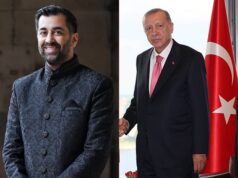It is being reporting that, according to Premier League data on racist abuse of Premier League football players, the majority of it originated from accounts overseas.
Reuters reported on Tuesday that they had been told by a “League source” the same day that around seventy percent of abuse came from overseas accounts.
Several members of the English national team have been subjected to abuse, following the defeat of the national team at the hands of the Italian national team. Marcus Rashford, Bakayo Saka and Jayden Sancho, who all missed crucial penalties in the final, have been subjected to racist abuse online.

Sanjay Bhandari, the Chair of Kick It Out, which is a group that tackles racism in football, confirmed the percentage of accounts which originated from overseas. He said that “these are not football fans” and that “they are people who have never been inside an English football ground”.
A further BBC Newsnight investigation using the Centre for Countering Digital Hate’s data on abuse following the final found 105 Instagram accounts that had targeted racist abuse at Marcus Rashford, Bakayo Saka and Jayden Sancho. Nine of the accounts were not active, while thirty-two accounts did not offer enough information to reach any assessment. However, fifty-nine accounts showed evidence of the abuse originating outside of the UK, with only five accounts being verifiably from the UK.

The England manager, Gareth Southgate, also acknowledged the presence of overseas accounts in the attacks on players. In a press conference following the defeat to Italy in the final of the Euros 2020, Mr Southgate called the abuse of the English players “unforgivable”, but added the side-note: “I know a lot of that has come from abroad – people that track those things have been able to explain that, but not all of it. It’s just not what we stand for. I think we have been a beacon of light in bringing people together, in people being able to relate to the national team and the national team stands for everybody.”



